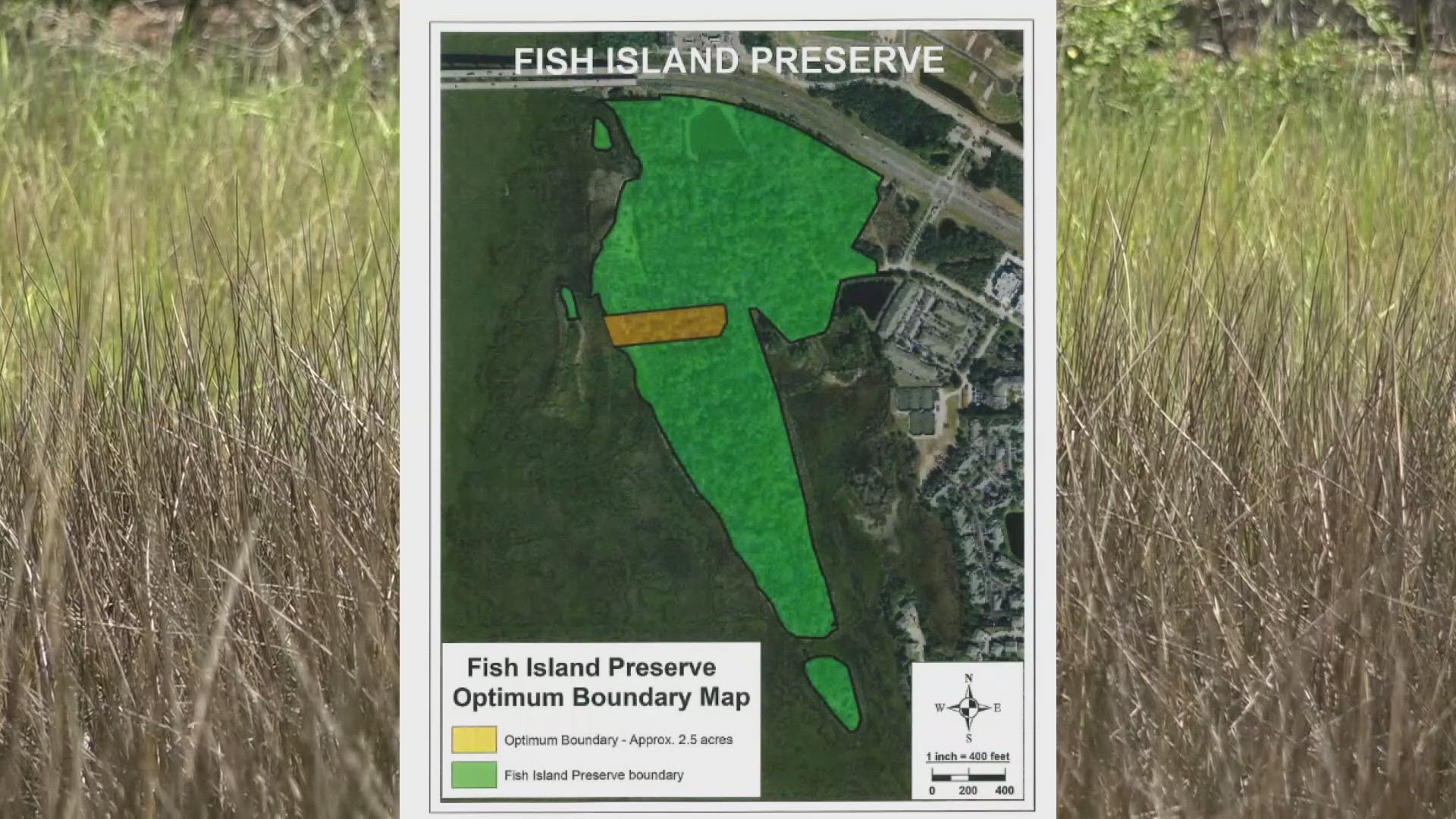ST. AUGUSTINE, Fla. — Imagine a nature preserve with a condominium complex in the middle of it.
That was a possibility for the Fish Island Preserve -- until now.
About six years ago, the community in St. Augustine rallied to save land, called Fish Island, from development.
They won when the state bought it to preserve it.
However, there was still a 2.5 acre section of it that could be developed.
This past week, the owners chose to sell this last chunk of land, ensuring all of Fish Island south of the 312 Bridge will not be developed.
Paul Thompson knows Fish Island. The land is not really an island in St. Augustine. It's on the Intracoastal Waterway at the southeast base of the 312 bridge.
"We’ve owned the property since the 30’s," Thompson said.
His family sold more than 50 acres of it to the state about eight years ago, and it was turned into a preserve and park. However, Thompsons held on to some land.
"My dad had cut out these three acres here because it was where the Jessie Fish homesite was – the ruins, the well, and the sentry guard post," Thompson said.
Those ruins from the 1700’s and the environmentally sensitive land are inside of the Fish Island Preserve.
Monday, the Thompson family struck a deal with the City of St. Augustine to sell those 2.5 acres to preserve them for a passive park.
"Yeah, isn’t that awesome," Barbara Blonder said. She is a St. Augustine City commissioner.
She described it as filling the donut hole at Fish Island. "It’s the final thing we really needed to do in order to be able to ensure all of Fish Island is protected," Blonder told First Coast News.
The land the city bought was zoned so it could be developed for commercial, houses, or a condominium.
But that won’t happen now.
The deal involved three parts. The city paid $500,000 for the 2.5 acres. Secondly, the city has to pledge $100,000 toward rebuilding replicas of the plantation’s historic buildings or create educational signage. The third part involves a separate island called Coontie Island.
For 35 years, the Thompson family has been in a land dispute with the city and the state over Coontie Island just south of Fish Island. This deal resolves that by the city giving up its part of Coontie Island to the Thompsons, and it will be under a conservation easement.
"It’s a win win. It’s so good," Thompson tapped the table.
"It really is a wonderful benefit to our entire community," Blonder said. She said it is the second time the city has purchased land for conservation within the conservation program which the city created last fall.
"We are able to dedicate funding toward acquisitions like this," Blonder noted. Applications are available on the city's website. She added that if property owners "really value the history and ecological value of their property and want to protect it into perpetuity, we'll help them!"
Thompson smiled and told First Coast News, "I think Dad’s looking down and going, 'Way to go! You’ve finished my dream!'”

